It’s no secret that many advertisers have seen the Facebook ads performance dropping since Apple launched its iOS 14 update. Perhaps you’ve noticed a drop in the number of conversions or a decrease in custom and retargeting audiences.
Whilst this may seem discouraging there’s something you can do to regain insights into your performance.
That’s where Facebook Conversion API (formerly known as Server-Side Events) comes into play.
What is Conversion API?
According to Facebook, Conversion API is designed to create a direct and reliable connection between marketing data from your server, website platform or CRM to Facebook. This data helps you personalise the advertisements, create accurate lookalike audiences, build retargeting audiences and help you more accurately measure the impact of your Facebook advertisements.
Simply put, Conversion API is a tool that allows you to track marketing data from your server, making tracking more reliable.
What’s the difference between Conversion API and Facebook Pixel?
Facebook Pixel is a browser-side tool that helps you to track your website visitor’s actions on your site using cookies on the browser. It’s still a valid tool that you need to set up before proceeding with Conversion API installation.
However, its effectiveness has been dropping in recent times. Think privacy laws, ad blockers, cookie blockers Apple’s iOS 14 update and so on.
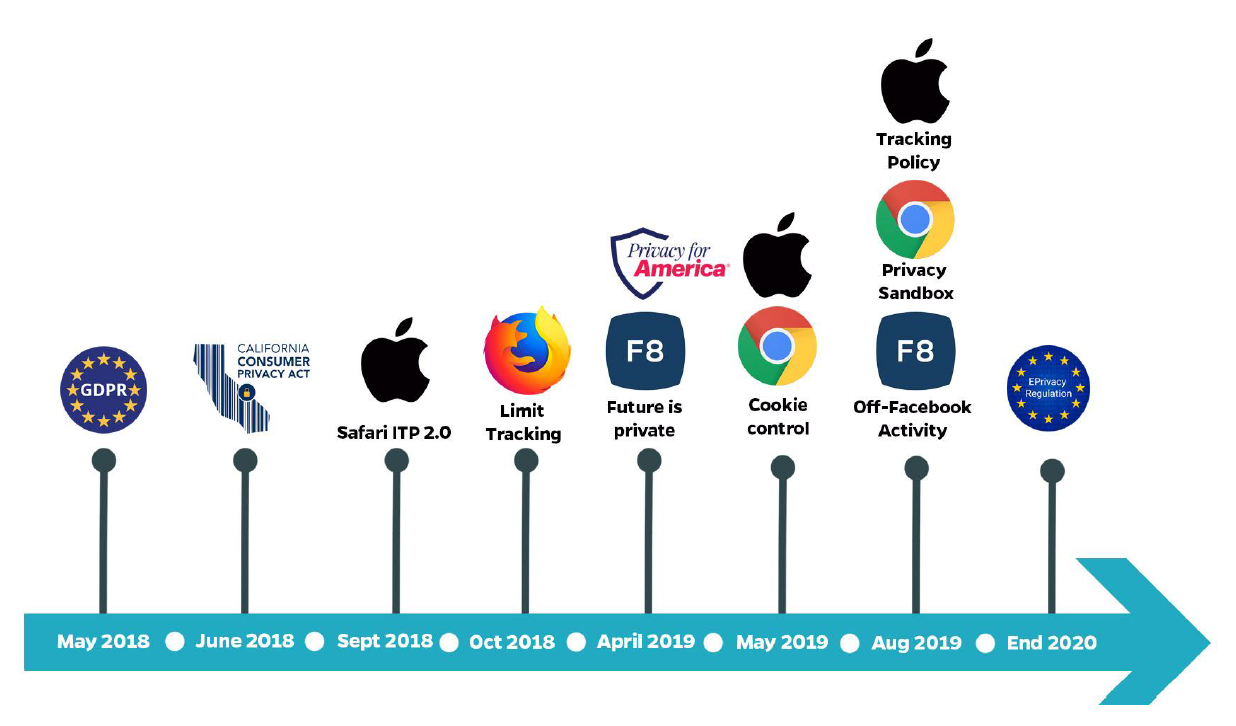
Source: LeadsBridge
The iOS 14 update strictly restricts the use of cookies for tracking on Apple mobile devices.
That meant Facebook Pixel alone will give you a lot fewer data about how iOS users use your website or app. If someone clicks through to your website or converts on your landing page from Facebook, you may not receive this information.
Whilst Facebook Pixel is a browser-side tool, Facebook Conversion API uses a server-side tracking, that you have more control over.
As the Conversion API is tracking conversion through your website’s server (and not through a browser), your website visitor’s browser settings and blocking software don’t affect its tracking capabilities.
The way to look at it is that Conversion API complements Facebook Pixel and allows you to gain better insights for your marketing decisions.
How can Facebook Conversion API and Facebook Pixel work together?
Both the browser-side event (through Facebook Pixel) and server-side event (through Conversion API) will continue to be triggered when a specific action is performed by your website visitor.
When Facebook receives an event through Conversion API, it checks to see if it also has a corresponding Facebook Pixel event. If the browser event is blocked – say Apple or ad blocker blocked the browser-lever tracking – Facebook can use the server event instead. So, you will not lose any conversions.
You may wonder what happens if both browser-side and server-side events fire. Facebook will just count the browser event and eliminate the duplicate. They call this process ‘deduplicate’.
Facebook Pixel alone offers insight into events that take place on-website. These may include page view, registration or purchase. When it’s combined with the Conversion API, you get a comprehensive understanding of your buyer’s journey. Actions such as off-website purchases and whether a customer continues to use their free trial or turns into paying customer are now tracked.
What does Facebook Conversion API track?
The Facebook conversions API allows you to track these conversion events:
- Leads
- Affiliate payments
- Phone calls
- Form submissions
- Email subscriptions
- Subscription changes
- Purchases
- Find locations
As mentioned before, it gives you a greater insight into your full sales funnel compared to using the Facebook pixel alone.
How to set up Facebook Conversion API for your WordPress site?
#1 Verify your domain
If you’re running Facebook ads that are optimised for conversion events, you have most likely verified your account. In this case, just move to step #2.
If you have not verified, you must do it for the Conversion API to work. If you’re not sure how to do this, our step-by-step guide is here to help you out.
#2 Navigate to Events Manager on Facebook Business Manager
Log in to your Facebook Business Manager on business.facebook.com, and from the left side menu, choose ‘Events Manager’. Then click on ‘Settings’ on an upper menu and scroll down until you notice the Facebook conversions API section.
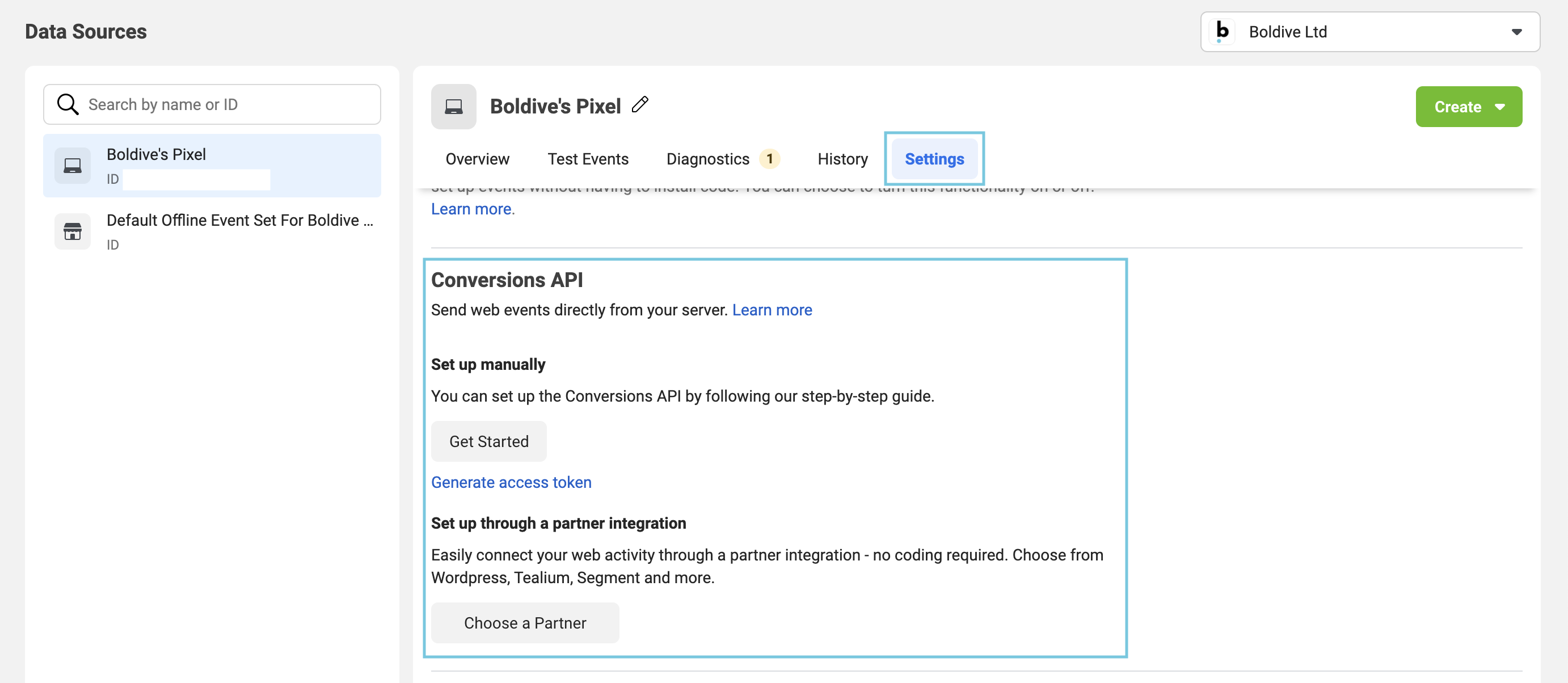
#3 Use Partner integration to set up Conversion API for WordPress
Setting up Facebook conversions API for your WordPress is easier than you may think. It requires no coding.
Just go with a ‘Choose a Partner’ option, and from the popup window that appears after clicking on it, hit ‘WordPress’.
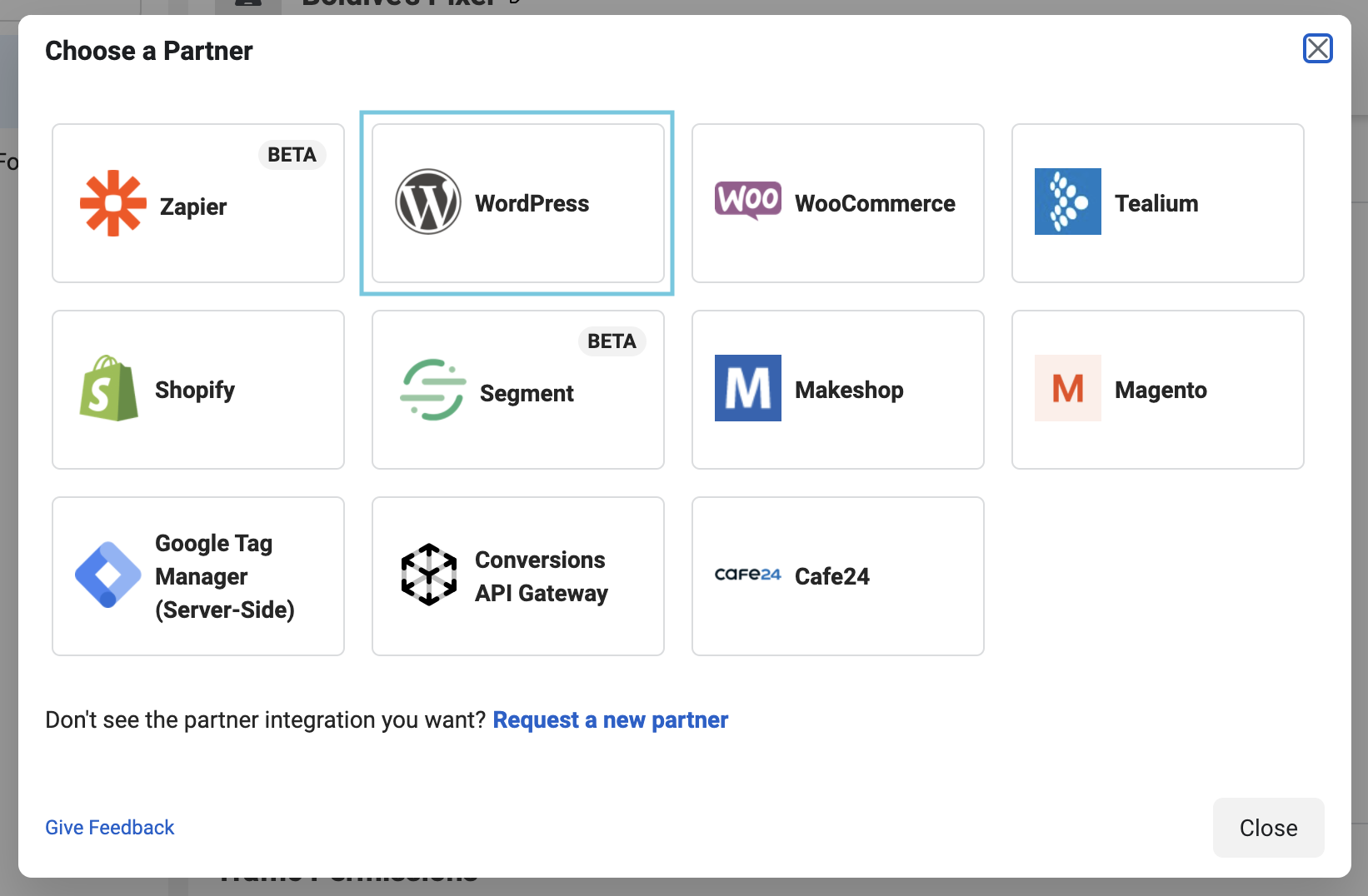
#4 Install and activate a plugin for your WordPress site
Log in to your WordPress managed site and head to ‘Plugins’. Then click on ‘Add New’ and search for a plugin called ‘Facebook for WordPress’.
When you find the right one, click on ‘Install now’ and then ‘Activate’.
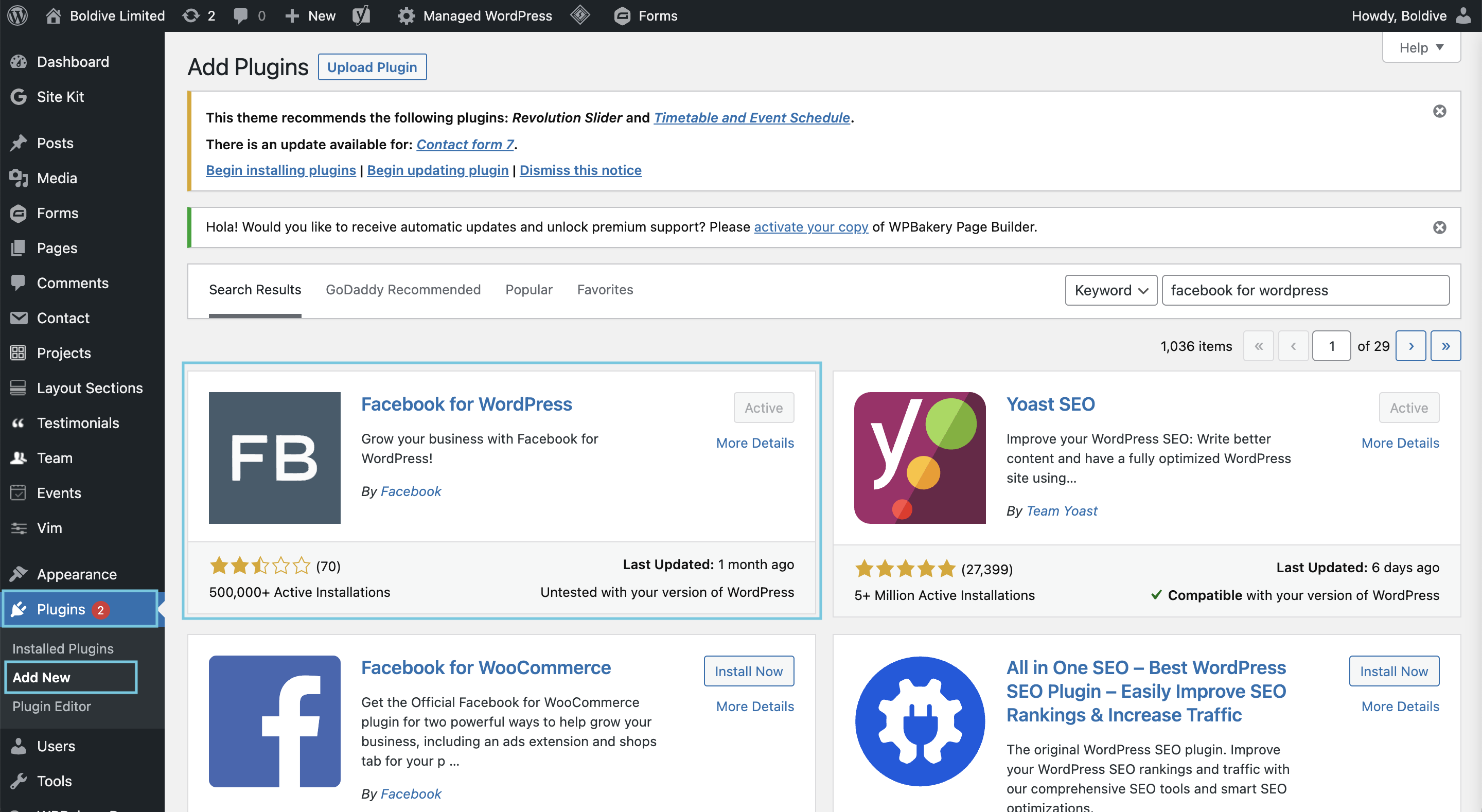
#5 Connect your business to Facebook
Now head over to ‘Settings’ on your WordPress account and from the drop-down menu find ‘Facebook’. Next, click on ‘Get Started’.
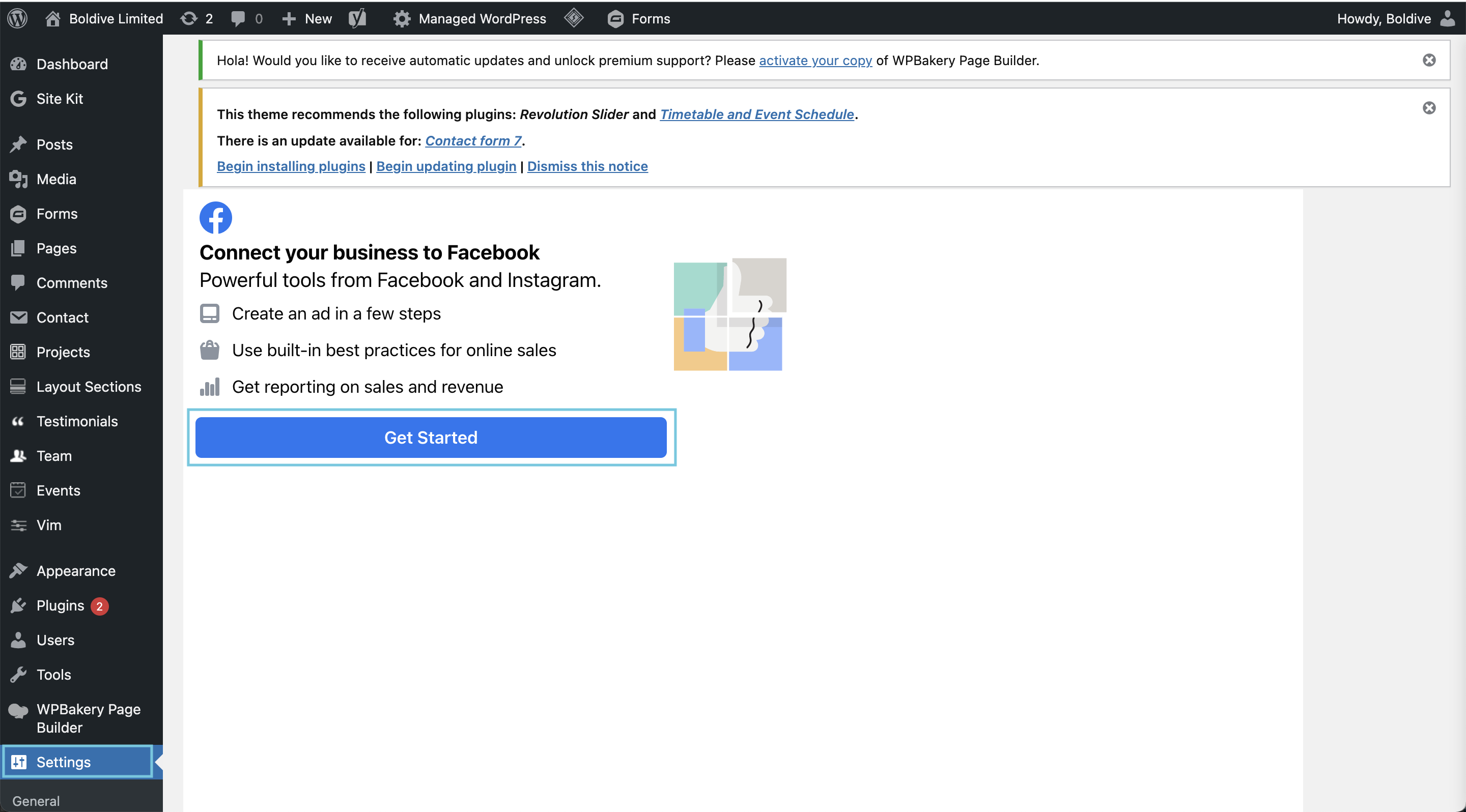
Follow the instructions prompted. These include logging in to your Facebook account, choosing the relevant Business Manager account that you want to connect the Conversion API with and choosing the Pixel connected to that account.
And that’s it! You have successfully set up Conversion API on your Facebook Business Manager account.
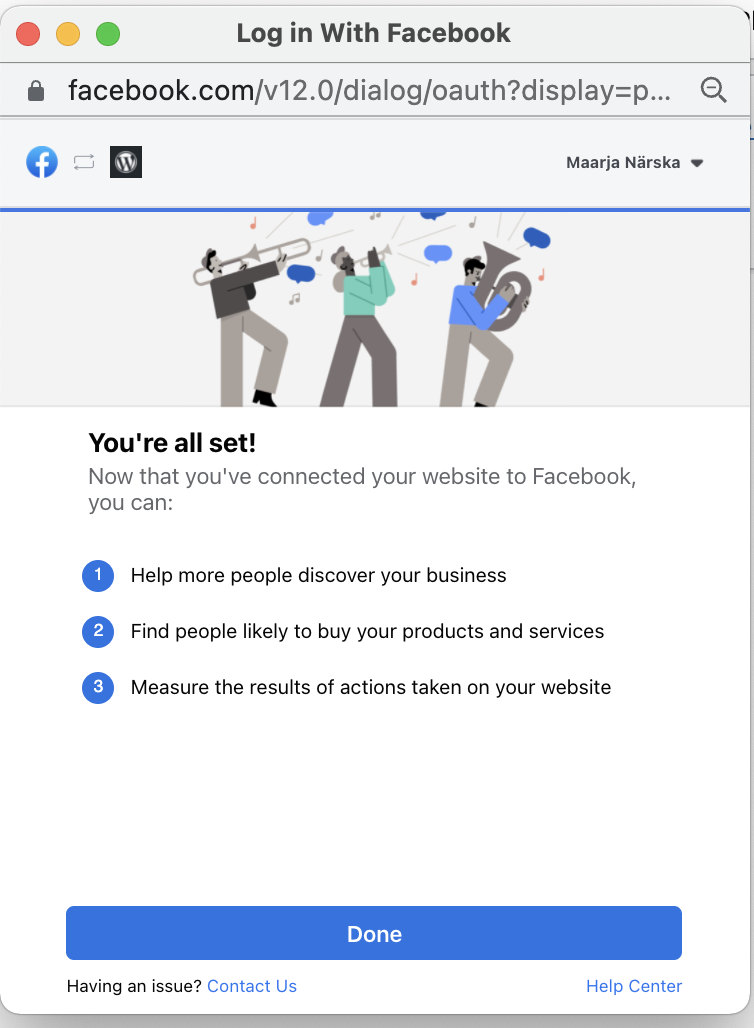
Conclusion
Conversion API is a must for advertisers in a post-iOS 14 update and privacy laws world. It allows you to gather detailed, accurate data on how people interact on your website whilst protecting their identities.
Using the steps in this guide, you can easily set up the Facebook Conversion API for your WordPress site. What you do from there is up to you and your imagination.
Need help with the set-up or boosting your advertising efforts? Contact us here.

